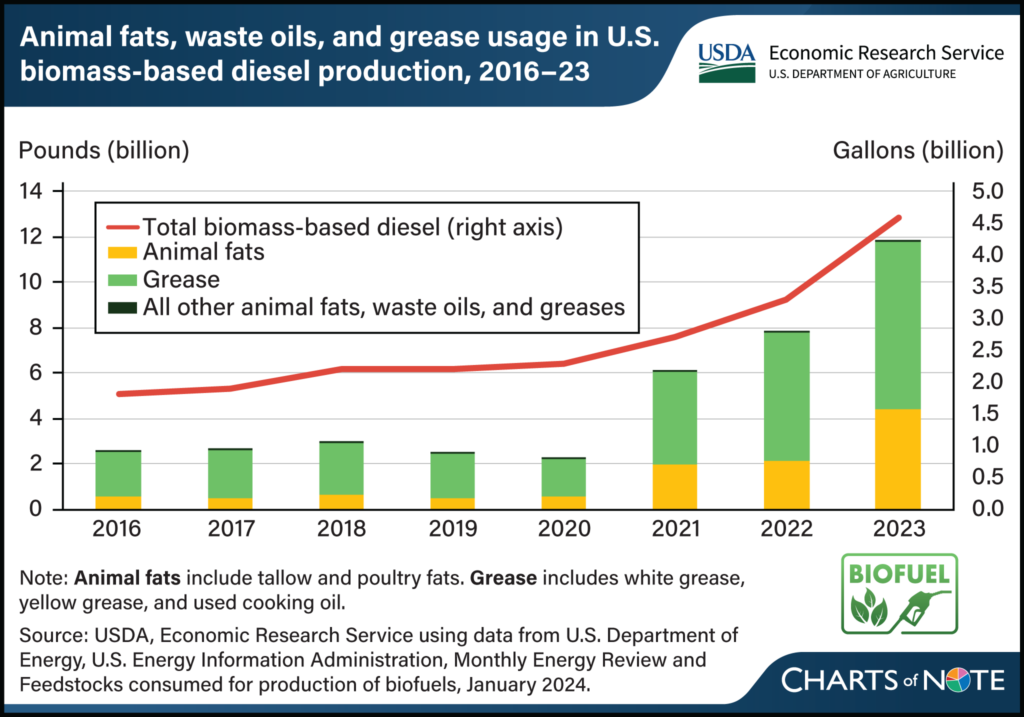Biofuel is a particularly powerful product. Here are a few facts about it:
- About 1 billion gallons of biodiesel are produced annually.
- Biodiesel is added to petroleum-based diesel to reduce emissions and improve engine life.
- Biodiesel lowers particulate matter by 47%, reduces smog and makes our air healthier to breathe.
- Biodiesel reduces hydrocarbon emissions by 67 percent.
- Biodiesel reduces lifecycle greenhouse gases by 86%.
- For every unit of fossil energy it takes to produce biodiesel, 5.5 units of renewable energy are returned, the best of any U.S. fuel.
- Generates at least $3 billion for the U.S. economy rather than spending on foreign oil
- Global biofuels production cuts consumption of crude oil by 1 million barrels a day.
- Most gasoline & diesel fuels in North America and Europe are blended with biofuel.
- The U.S. biodiesel industry supports 31,000 green jobs.
- Growing biomass-based diesel production drives demand for animal fats, waste oils, and grease
U.S. Federal and State policies aimed at reducing greenhouse gas emissions have encouraged the production of biofuels, which are derived from crops, vegetable oils, and animal fats. One type of biofuel is biomass-based diesel, which includes mainly biodiesel and renewable diesel. With expansion of the Renewable Volume Obligations under the U.S. Environmental Protection Agency’s Renewable Fuels Standard program as well as State programs, the capacity to make renewable diesel has grown significantly, driving an increase in total biomass-based diesel production from 1.8 billion gallons in 2016 to 4.6 billion gallons in 2023. The use of animal fats (edible and inedible tallow, lard, and poultry fats) and greases, including used cooking oil (known as “UCO”), in producing biomass-based diesel increased to nearly 12 billion pounds in 2023. Use of animal fats, waste oils, and greases accounted for 37 percent of total feedstocks used for biomass-based diesel production in 2023, compared with 17 percent in 2020. The increasing share of animal fats, waste oils, and greases corresponds with a declining share of vegetable oils (soybean, canola, and corn) in biomass-based diesel production. The rising use of animal fats, waste oils, and grease (including used cooking oil) has boosted U.S. import demand for those products, especially used cooking oil. Used cooking oil imports reached more than 3 billion pounds in 2023, compared with 0.9 billion pounds in 2022. This chart is drawn from a Special Article in USDA, Economic Research Service’s Oil Crops Outlook: July 2024.



